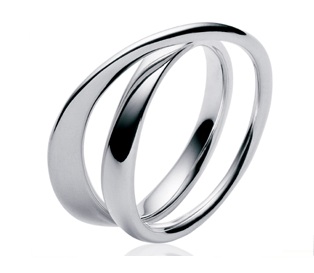Keep this disanalogy in mind folks. I bring this up for two reasons, first, a conversation I had with a young college student last night and, secondly, today's piece in the NYTimes on evangelical youth activities. Let me see if I can get you to follow my reasoning here.
While reading through today's Times piece on the growing fear among Evangelicals that they are losing their youth, I happened upon this passage.
Over and over in interviews, evangelical teenagers said they felt like a tiny, beleaguered minority in their schools and neighborhoods. They said they often felt alone in their struggles to live by their “Biblical values” by avoiding casual sex, risqué music and videos, Internet pornography, alcohol and drugs.
I'll save for some other time what is fundamentally flawed about this reasoning. What I want to focus on instead is what this characterization of their non-evangelical school mates says about what role evangelical Christianity plays in the moral development of teenagers. The idea here is that only by adopting the strict father moral code of evangelical Christianity can young people avoid the pitfalls and dangers of a sex-crazed life. The idea here is that being an evangelical is, in large part, about denouncing certain behaviors and activities. By joining an evangelical community, you join a community that
prohibits certain activities and also keeps you committed to those prohibitions.
What is interesing about this sort of practice is that the emphasis on strict prohibition might deter many from joining such a faith community. Strict prohibition is usually synonymous with moralism. People don't like living up to a list of
don'ts, and frankly, when that is one of the core impulses of a religious movement, it's not likely to appeal to a lot of people. I think we generally like to find communities that accept us, that listen to us, and that allow for some different views about what is healthy behavior and what isn't
Now, why am I tying this to feminism? Well, you see, last night I was talking to a young feminist from my campus who was reflecting on why so many young women do not want to call themselves feminists. One of her friends said, "I can't be a feminist because I really like to read
Glamour or
Cosmo." We (5 adult activist feminists) all sort of chuckled. None of us really cared a whole lot about whether or not a woman wants to read fashion magazines (
and yes, I did say that in spite of my critical post on BUST magazine.) While I think these magazines are inane, I don't think this is sufficient to kick someone out of the feminist movement. Similarly, I don't think that a teenager who listens to non-Christian rock n' roll should or who doesn't endorse abstinence-only education should be considered a heretic or dangerous secularist.
If you are a woman who believes you have a right to be treated like a human being, with dignity, respect and worth, then you are a feminist. What you wear, what you read, what you eat, or who you fuck, don't matter a whole lot to me
if you believe strongly in the above sentiment. Likewise, I don't think that a Christian--someone who is inspired by Jesus's example--needs to check out of the secular world and its delights to be truly faithful.
To see feminism as an evangelical movement is, plain and simple, a strawfeminist argument. And, what a pity. We have already seen how the rise of fundamentalism, particularly fundamentalist evangelical movements, has done to many peoples' views of Christianity in general. The religious right insights real hatred for Christians in general, when these folks do not represent, by any means, what Christianity is about.
Likewise, the false image that feminism is a insular community of women who
prohibit the desires and delights of most women--whether it be fashion magazines, being a stay-at-home mom, or knitting--does untold damage to the value and worth of this movement.

 Secondly, I want to alert all readers--liberal and moderate alike--to take a look at this website, "The Haunting of Rick Santorum." Here you can read Rick's own words on issues such as birth control, equal pay, and on women with careers.
Secondly, I want to alert all readers--liberal and moderate alike--to take a look at this website, "The Haunting of Rick Santorum." Here you can read Rick's own words on issues such as birth control, equal pay, and on women with careers.







